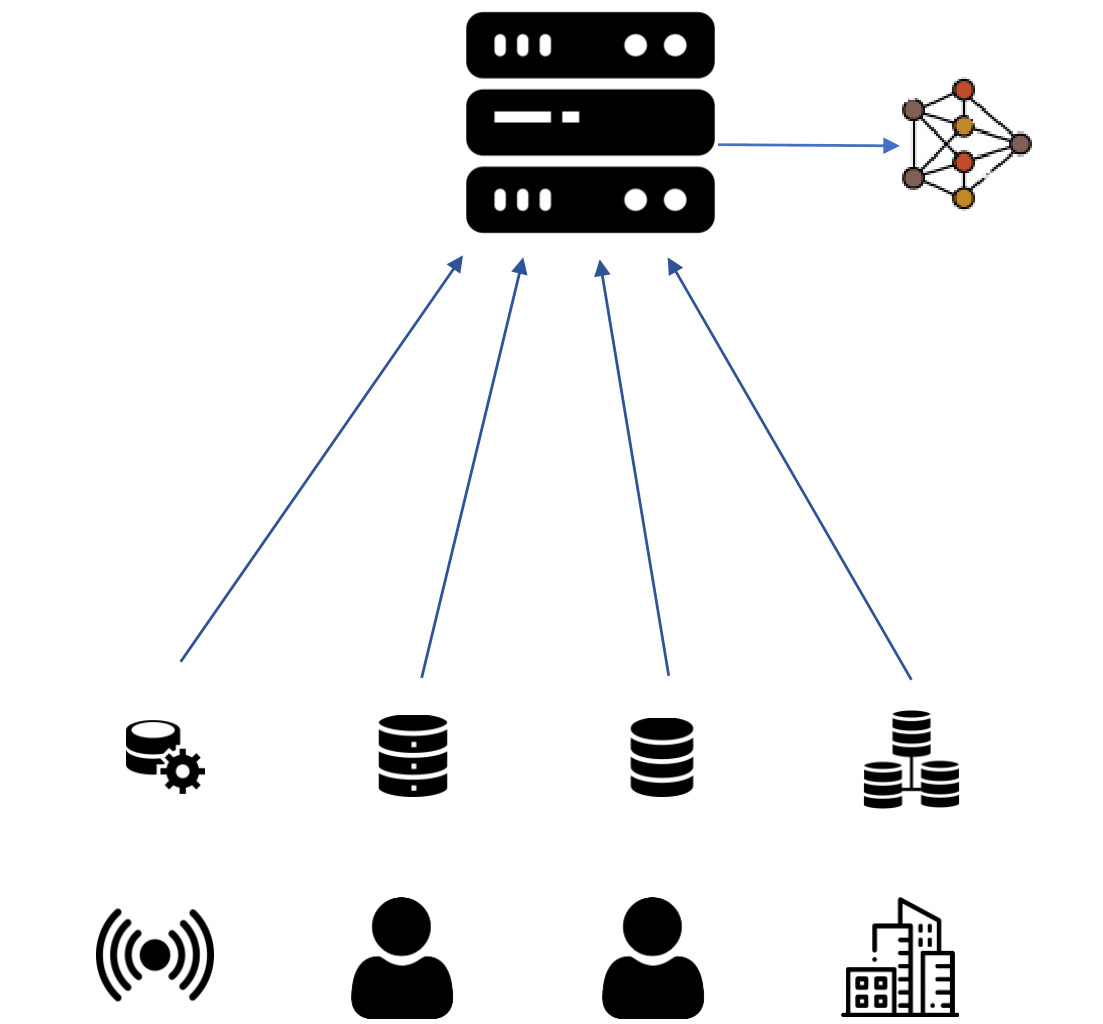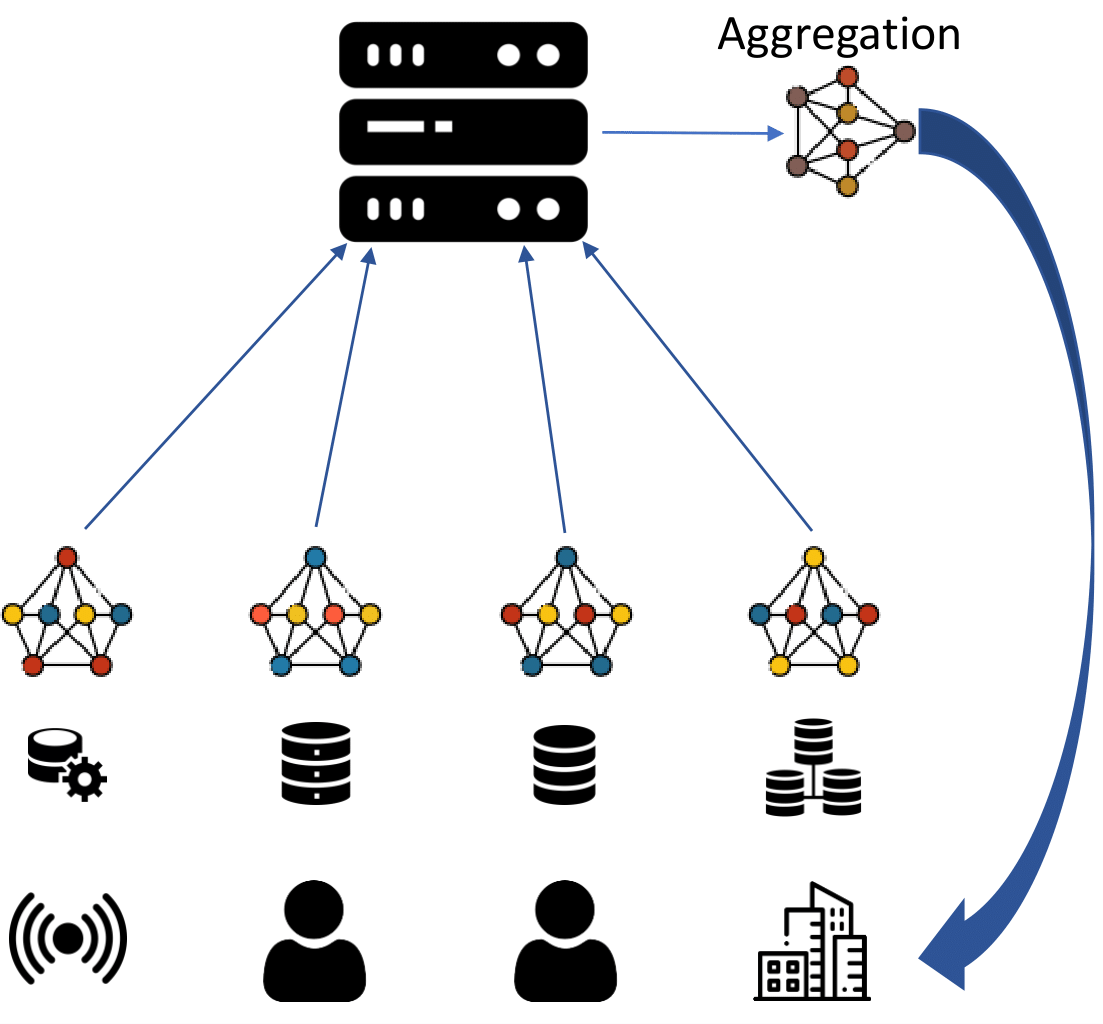In a world where data is the new oil, protecting them has never been more important, especially when considering strict laws and regulations like the GDPR. Every time you type on your phone, ask your voice assistant a question or use a smart device, there’s a silent agreement: your data powers artificial intelligence, but at what cost?Enter Federated Learning (FL), a game-changing approach to machine learning that keeps your data where it belongs: on your device.
🤖 The Traditional Way: Centralized Machine Learning
Let’s start with how machine learning has traditionally worked.
In the classic approach, all your data, whether from smartphones, hospitals or smart homes, are collected and stored in a centralized server (a.k.a. “the cloud”). Then, machine learning models are trained on this massive pool of data to make predictions or decisions.But here’s the catch: moving sensitive data to a central location poses serious privacy, security and regulatory challenges. Think GDPR, HIPAA and those scary headlines about data breaches.

🔄 A New Way Forward: Federated Learning
Federated Learning flips this model on its head. Instead of sending your data to the model, FL sends the model to your data.
Your device trains a local version of the model using your data and then it sends only the model updates back to a central server. These updates are aggregated to improve the global model, which is then sent back to everyone’s devices.
Importantly, your data never leaves your device.
Real-World Examples:
- Gboard (Google’s keyboard) uses FL to learn how you type and suggest better next words, all without seeing your texts.
- Google Assistant and Apple’s Siri are also using FL under the hood.

💡 Why Federated Learning Matters
Here’s what makes FL powerful:
- Privacy-first: Raw data stays local.
- Collaboration at scale: Devices learn together without sharing private information.
- Scalability: It works even with millions of devices.
- Eco-conscious: Less data movement = lower carbon footprint.
- Still accurate: FL can achieve performance similar to traditional methods.
🧠 Our Commitment at Idigma
At Idigma, we believe the future of AI must be ethical, privacy-preserving and user-centric. That’s why we’ve made Federated Learning a cornerstone of our research and development.
We bring deep technical expertise in Federated Learning to help solve real-world problems, responsibly. Whether it’s improving personalization in a privacy-safe way or deploying scalable FL systems across diverse devices, our work is guided by strong ethical values and a mission to protect users’ rights while enabling powerful AI innovations.
📉 But It’s Not All Smooth Sailing
Federated Learning is not without its challenges. Some of the biggest hurdles include:
- Data is messy: Every device has different kinds of data (called “non-IID data”), which makes training hard.
- Personalization vs. Generalization: Should the model work better for your device or for everyone? Striking that balance is tricky.
- Privacy still needs work: Even model updates can leak information if improperly handled.
- Communication is costly: Sending updates back and forth needs bandwidth and power.
- Too many knobs to tweak: Some advanced techniques are hard to apply in practice because they require lots of fine-tuning.
🛠 So, What’s Next?
The future of Federated Learning isn’t just about better models, it’s about ethical, responsible, and sustainable AI. As researchers continue to explore what works in practice, we need to:
- Evaluate new algorithms with real-world constraints in mind.
- Balance performance with privacy and fairness.
- Ensure the solutions are practical, not just theoretical.
✨ TL;DR
Federated Learning is a cutting-edge technique that trains AI models without compromising your data privacy. It’s already powering some of your favorite apps and while it’s full of promise, it also comes with technical and ethical challenges. The next big leap is making sure these innovations actually work outside the lab in the messy, complicated and very human world.
